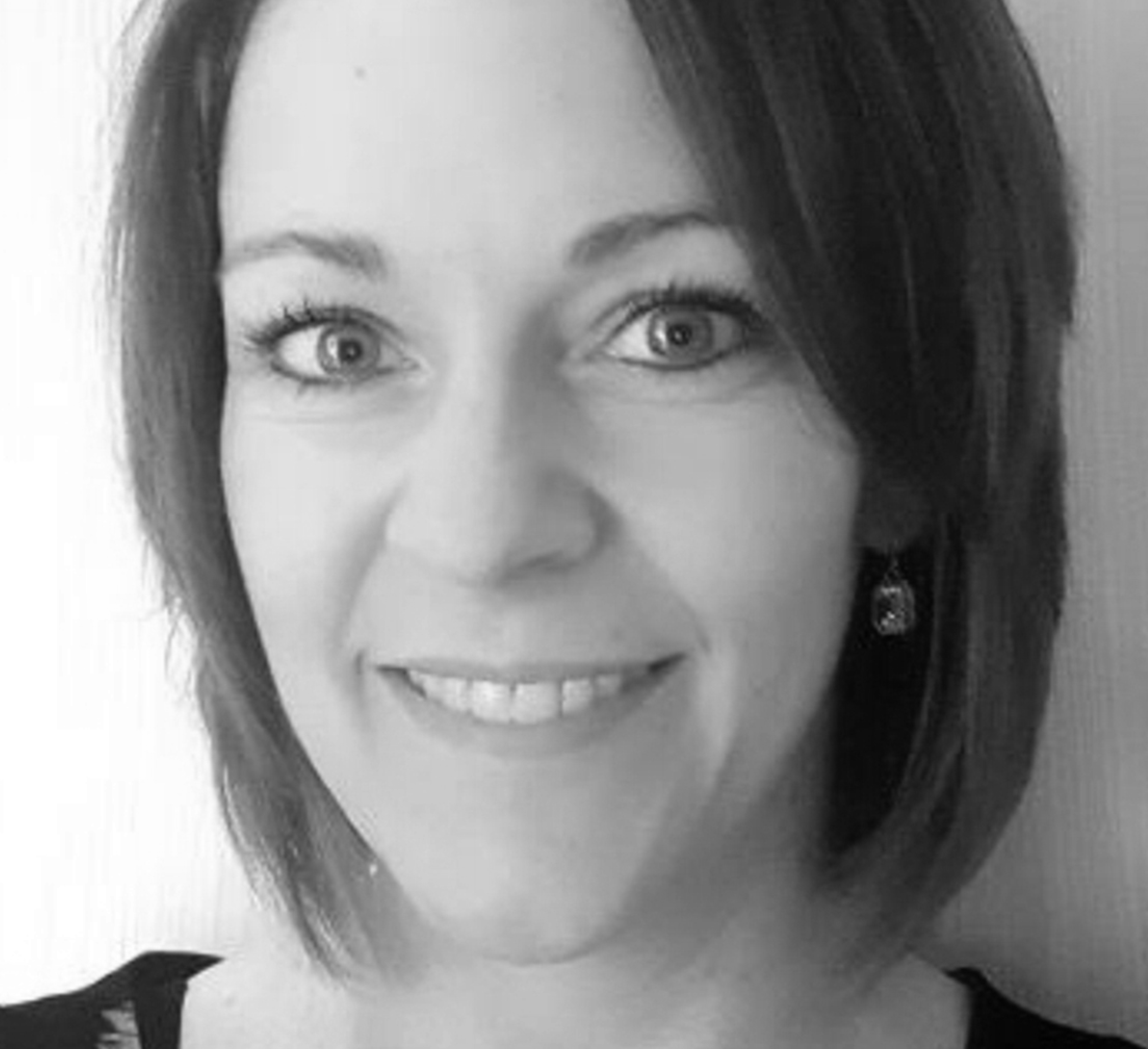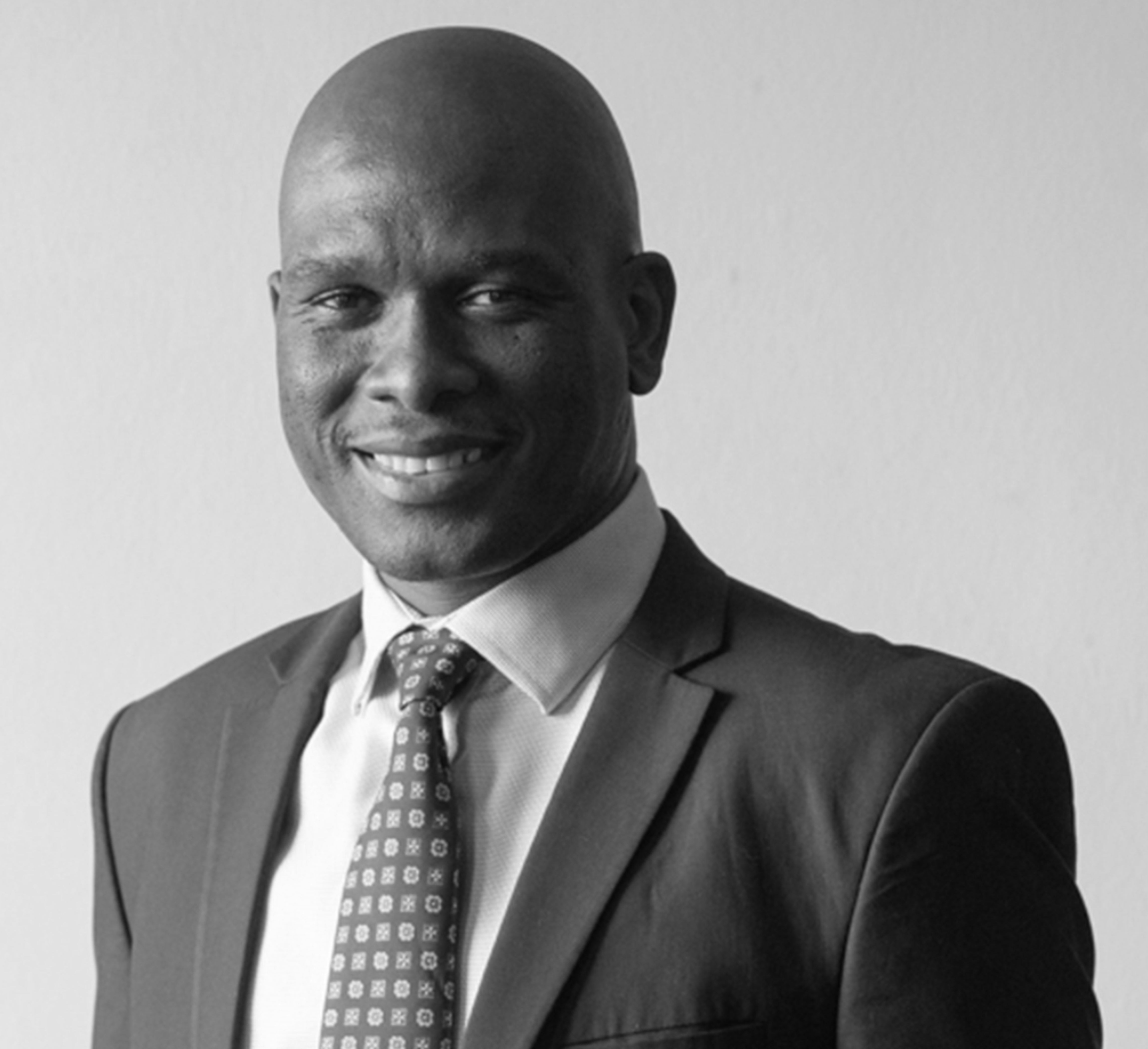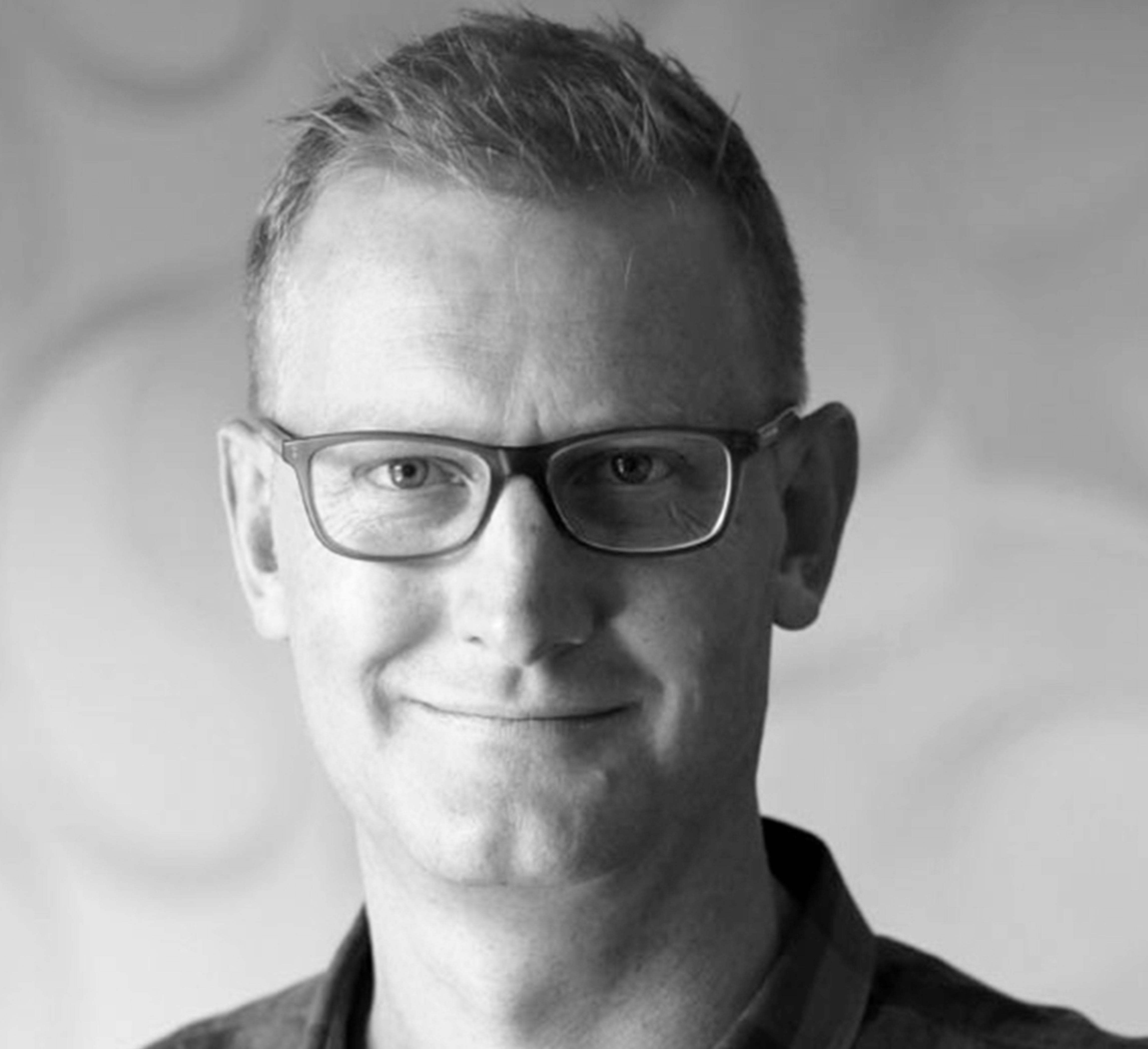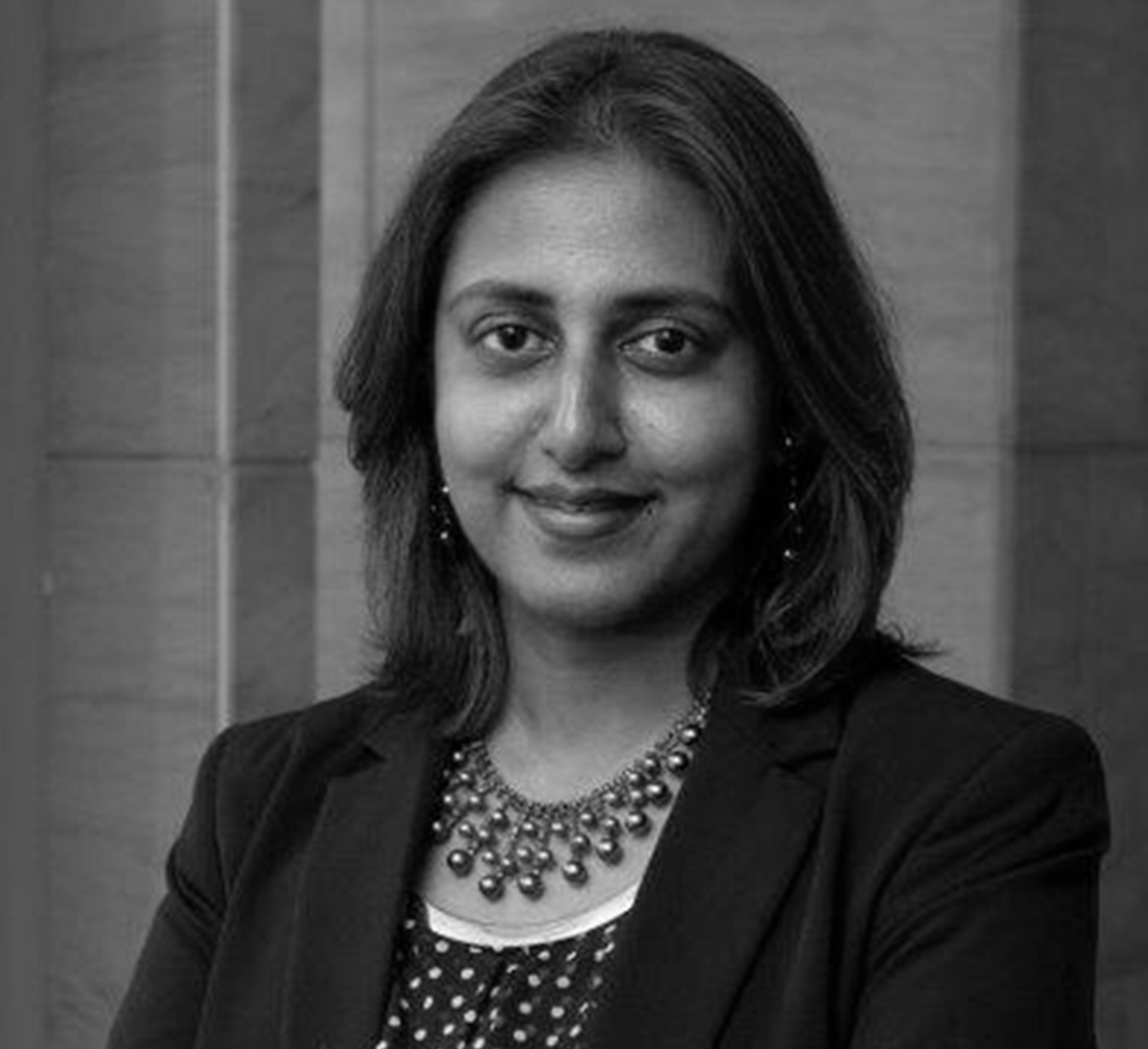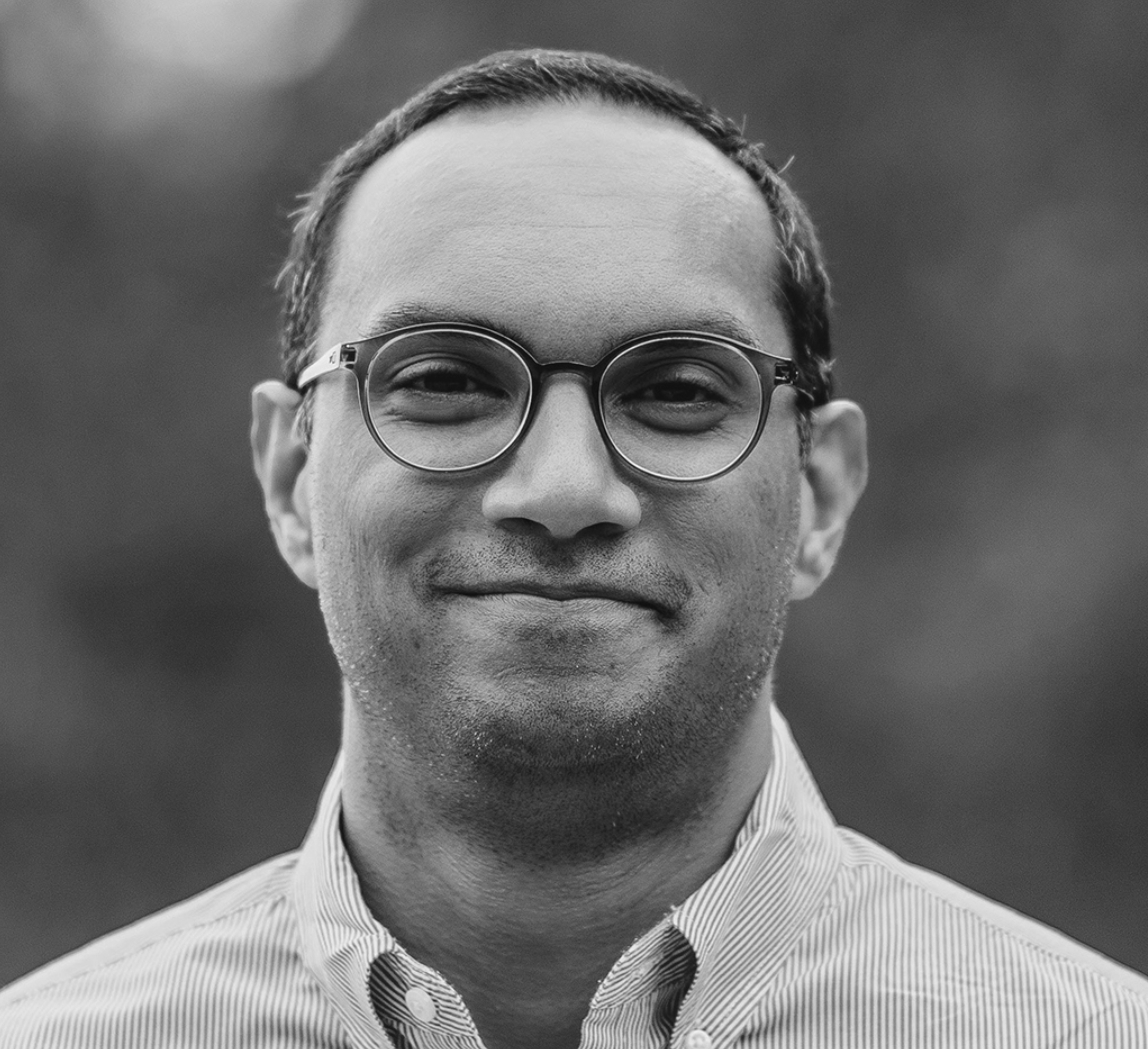79: Yolandi Engelbrecht
Finance and HR Executive Manager – De’Longhi
Yolandi Engelbrecht is the epitome of the modern finance executive, with the ability to add value while adapting to multiple roles within this international organisaton.

CIARAN RYAN: This is CFO Talks and what a pleasure it is to welcome Yolandi Engelbrecht, who is Finance and HR Executive Manager at De’Longhi South Africa. De’Longhi is an Italian based manufacturer of kitchen and home appliances, but it’s perhaps better known for its wonderful coffee machines for your morning espresso or cappuccino. Yolandi has an MBA and is a member of the Chartered Institute of Management Accountants, and in a sense, embodies the modern finance executive. Beyond preparing the financial statements, she interacts with the IT department and handles the human resources functions of the business, as well as payroll and company secretarial functions. Welcome, Yolandi, are you well this morning?
YOLANDI ENGELBRECHT: Thank you very much for the warm welcome. Yes, I am very well, and I am very happy to meet with you.
CIARAN RYAN: It’s wonderful to have you on. I’m interested to find out about the business of De’Longhi South Africa, how much is its turnover and how much of that is coffee sales? We all know that the De’Longhi brand, if you’re a fan of espresso that’s a brand that you’ll never miss, but what are the main drivers of revenue here in South Africa?
YOLANDI ENGELBRECHT: De’Longhi South Africa, as a company, actually distributes three brands. We’ve got De’Longhi and then Kenwood and Braun, and that I think is a bit more well known. It’s branded household small appliances, so it’s not just coffee machines. De’Longhi, which consists mainly of the coffee and breakfast and heating categories, which includes your kettles and toasters and your heaters, currently contributes a little less than half of our turnover, I would say. On the other hand, Kenwood, which consists mainly of food preparation appliances, contributes more than 50% of our turnover, and interestingly enough, when compared to last year for the same period, we have seen a very strong demand for Kenwood food preparation products. This we assume and know has been driven by people spending a lot more time at home since the national lockdown. We are the market leaders in the kitchen machines currently, and many South African consumers grew up with a Kenwood machine in the kitchen, especially the young ladies, I would say, dreaming of owning one themselves one day. If there’s one thing that we as South Africans can do well, it is cook and bake and eat. I can also say with pride that our De’Longhi machines do make good coffee, so it is really worth it to try it. Then in Braun we supply only household goods, such as the hand blenders, the one with the SPLASHControl, which is a very important point. Most of our products are available in all the major retailers, such as Makro, Game, @home, Hirsch’s and online platforms such as Takealot and Yuppie Chef.
‘We are surviving quite well through all of this’
CIARAN RYAN: It’s interesting, I didn’t know about the Kenwood and the Braun brands also being part of De’Longhi and also interesting to find out about coffee. So the turnover is about R200 million a year in South Africa. That’s interesting that you mentioned there about people buying kitchen appliances. Now, what I was going to ask you, what are the challenges facing business during the lockdown period, but it seems that you are surviving quite well through all of this.
YOLANDI ENGELBRECHT: We are surviving quite well through all of this. I know it’s not the same for everyone, so we’ve been very privileged. The only real physical challenge we’ve had was the loss of revenue for the month of April during the level five lockdown. I think more for the sales team, they have to find alternate ways to connect with the customers, they normally operate in the field. In the end, they managed to connect with customers remotely. Since the announcement of level four restrictions, we were able to sell heaters again as an essential product. Then as essential restrictions have been eased, we have been able to distribute all product categories I would say from level three. I think it’s more emotionally that it has taken its toll on everyone. I don’t think anyone in the world was prepared for this, and the loss of lives and jobs, as well as the burden on all economies is weighing on everyone. But at the same time, I can say that I see people getting closer and relationships are definitely becoming stronger, families and colleagues. Another challenge that we did have to overcome was the fact that not all our employees had enough accumulated leave to take during the lockdown. We are guided by a group company with policies and we have to comply to their rules and regulations. So we had to force our employees to take leave during lockdown. We did get some sort of support from the government regarding TERS, but amazingly our workforce assisted each other whereby employees with high accumulated leave balances actually donated their leave to people with low balances to ensure that no one went unpaid for the entire period.
CIARAN RYAN: Really?
YOLANDI ENGELBRECHT: Yes.
CIARAN RYAN: How many people are employed in De’Longhi?
YOLANDI ENGELBRECHT: We’re a very small team, we’re only 30 people but it’s a very close team.
CIARAN RYAN: That’s a remarkable story, people donating their leave so that everybody gets paid and survives through this. That does seem to indicate a sense of unity in the business and looking out for others rather than just oneself. What a nice touch.
YOLANDI ENGELBRECHT: Yes, definitely. I can say that I am proud to be part of this team.
CIARAN RYAN: What other kinds of adjustments have you had to make during this period in terms of remote working and how do you keep your teams interacted and engaged?
YOLANDI ENGELBRECHT: For us, luckily it’s been relatively easy, it sounds like we don’t have the brunt of Covid because we’re an international company with a very hands-on head office structure in Italy, we were already used to using Skype and Zoom as a form of daily communication. So our teams and the entire workforce, the switch over to remote working from home wasn’t a challenge for anyone and business really continued smoothly. From the first day of the national lockdown, we did daily check-ins and collaborations between all staff members and departments and business resumed. So we adapted quite easily to the challenges.
CIARAN RYAN: I noticed from your CV that you’re involved in many functions that go beyond the remit of the traditional finance executive, you also seem to be deeply involved on the IT side. Is this important for finance executives to understand, I’m talking about the IT function, given the role that it plays in delivering finance intelligence and information?
YOLANDI ENGELBRECHT: I would say definitely, yes. The finance department in most corporates are normally the super users with your ERP system, such as SAP, and definitely with Microsoft Excel. We use a high level of software tools, such as power pivots, complex functionality, and sometimes even SQL and macros for basic programming. At De’Longhi we recently partnered with a company called Torch Solutioneers to redesign processes for us to see if we could implement RPA, which is robotic process automation, to replace the frequent mundane manual reporting. It’s very interesting, they build a bot which gets activated at night, the bot will run and pull all the reporting from the system, refresh your queries, and it would create anomalies analysis graphs, and it will compile it into one clear report and it gets emailed to each individual. So by the time you walk into the office, you already have access to something that would have taken you an hour or two in the morning before you could get ready. For me, this is the heart of finance, finance professionals should be using their time to deep dive into analysis, we shouldn’t be acting as administrators or someone that’s refreshing and running reports. On the maintenance side of IT, such a setup of laptops and server upkeeps, that part we outsource. Another important point is during systems switch overs, if a company ever has to change from one ERP to another, the finance department is normally the project manager on those, and we control all the data that gets exported from one system into another. If we don’t understand all the modules and the functionality, we cannot support the rest of the organisation in this regard. I actually have a few friends who used to be in senior finance positions and after they’ve done a switch over like this, they joined the IT development department on a fulltime basis and they leave finance completely. So it can also aid personal growth and development for finance individuals. Then, if I can add, besides IT, the exposure that I’ve had from an HR perspective has been very valuable to my career and personal growth journey. We, as finance professionals, are taught about cost savings, financial stability, and growth, managing everyone and everything within these parameters.
We’re not always looking at the human element and seeing the people who are helping us achieve the budgets and forecasts, and trying to understand the bigger operational need, we look for right and wrong. HR has taught me to listen, to ask open ended questions and you see the bigger picture from different angles. Also something that we might think is not important but assisting with recruitment and performance management and training, forces you to gain an in-depth understanding of other roles and functions in the entire organisation, which in the end, it helps us becoming business partners in our support roles too. For example, the sales, marketing and logistics departments, rather than just managing the money. I find that more and more medium-sized enterprises combine finance, payroll, and IT under their responsibilities. But, in my opinion, this could also include other HR functions. There is one challenge though, if you attend the finance and HR Indaba show, you can’t decide which floor to go to, as thre are two days only, and you have a hundred activities on both.
‘I really enjoy working for foreign companies’
CIARAN RYAN: Yes, that’s true. Tell us a bit about yourself and your career path and how you ended up at De’Longhi.
YOLANDI ENGELBRECHT: I relocated from Port Shepstone at a very young age. I started as a bookkeeper with a company in Rosebank called MedOne Technology. After that I joined EQSTRA Fleet as an accountant for some time, and eventually I ended up with a company called Fresenius Medical Care, they are a German dialysis company. They were new in South Africa at the time, and with them I developed from an accountant to a finance manager. During my time with Fresenius we established close to 60 dialysis centres across South Africa and a part of Africa, in Namibia, Swaziland and Lesotho. I have to say that was an amazing journey for me, it lasted eleven years. I had great exposure under great leadership, and I always say that’s where my career started. After I obtained my MBA, while I was still at Fresenius, I was offered an opportunity to join a French start-up company in South Africa, ID Logistics, which at the time was in partnership with Danone South Africa, where I also served on the local executive board. Again, I had great co-workers, mostly male this time around, as it was logistics. It was great exposure with a strong international company that I worked for. The French MD, who I reported to, also gave me a completely different perspective on management styles and how to apply different international business processes. From there I joined De’Longhi, which is where I am now, which is an Italian company, and for some time I reported to a Polish MD who was based in Dubai, which once again was very refreshing and gave me more exposure. I joined them in May 2019 and recently we’ve had a change in reporting structure again, and now I’m reporting to a local MD as part of the local executive team. Also, great leadership from both these MDs. I can say that I really enjoy working for foreign companies. I love learning about different cultures and I also enjoy the traveling. During my business trips I have been to more than ten countries in the last ten years.
CIARAN RYAN: What I find interesting is that you’ve come through a fairly non-traditional route to the CFO position. You’ve got an MBA and you’re a member of the Chartered Institute of Management Accountants. You haven’t gone the CA route. Have you found that to be a challenge in any way? Does it equip you properly, do you think, for the CFO role?
YOLANDI ENGELBRECHT: I think in South Africa there is discrimination against people with CIMA MBA versus CA, a lot of the corporates prefer having CA because of the articles that was done, which I don’t really understand because as a CFO with an MBA and a CIMA, and have had to manage different finance functions and departments, all my audits have been clean. I also spoke to specialist once and they said that CIMA and CA are actually equivalent to each other. But what I can add is that I personally had a great experience during my MBA, and with the case studies you get a lot of exposure of what great leaders have historically done right and wrong, and you get to learn from their mistakes. During my CIMA studies I also had great exposure around the needed finance laws and regulations and applications, both experiences were very valuable. However, the one thing I do feel, and this would even fall under the studies of CA, is a lack in teaching young students, problem-solving skills and how to apply logic, how to handle stress in a fast-paced environment and how to think outside the box, not everything can be applied textbook style. For me, while studying, we get exposure to complex business models and tools and theories, which is very generic, and then we are exposed to a VUCA world – volatility, uncertainty, complexity and ambiguity – and business environment that not everyone can keep up with and not everyone can handle the stress around this. It is crazy out there. We even see that now more so with Covid. I actually recently read an article written by Hermann Du Plessis from the Themba Thandeka Leadership Institute, I read it on LinkedIn, where he mentions that in South Africa one third of our workforce suffer from severe anxiety and depression. That also means that one third of our leaders struggle with those. He goes on by saying the World Health Organisation published a report that shows that every $1 spent on mental strength development has a $4 return in terms of productivity. So I’m asking if it’s this valuable, why is it missing from our studies because it’s not there. I’ve been privileged enough, the Themba Thandeka Leadership Institute have a fantastic course called Building Mental Tenacity and Resilience, and I attended this about two years ago. It’s all about how fast you can bounce back after a setback, and it has definitely helped me to cope with more than I would have been able to before, especially now with all the stress and the crisis going on. So for me, this is not something you’re taught at university and maybe should be considered as part of the curriculum.
CIARAN RYAN: Well, that’s an interesting point. If you look at the normal route, and this is something I bring up with a lot of CFOs, is are you adequately prepared through the university system and through the training or the academic line or channel that you take, are you adequately prepared for the role of the CFO, and the common answer is no. You’ve already mentioned that you’re handling the HR function, you having to interact with IT, you’re presumably doing a lot of strategic interaction as well at board level. Now, one of the things, and this is a study, I keep on repeating, that From CA to CFO, which is a study that was done at Queen’s University in Canada, and they actually identify more than 30 different disciplines that are required for the CFO role, and very, very few of those are actually taught in the conventional accounting study route. That is one of the reasons why the South African Institute of Business Accountants launched the Certified Financial Officer designation or the CFO designation, because a lot of people have acquired this experience of operating at top level executive boardroom level, but they’re not getting recognised for that. There are disciplines that are now being understood that you have to know, and I’m sure you found this, like a lot of the disciplines you’re talking about, you have to learn through experience. Is that correct?
YOLANDI ENGELBRECHT: Yes, that’s definitely true. I think also the time we spend in obtaining these qualifications is very short and it’s very rushed, but time is money, I suppose, and we all try and do it as quickly as possible to get out there and to start working. But I definitely think there needs to be some investigation as to more exposure for finance individuals because interestingly enough, and I think you’ll agree with me, that a lot of CAs end up in GM positions or become a CEO of a company, and then you can’t have a narrow-minded focus and just know finance tools and models.
‘I fully believe in the power of positive affirmation and reinforcement’
CIARAN RYAN: We’re running short of time here, a couple of quick questions. Are you optimistic for the future, both for De’Longhi and for South Africa?
YOLANDI ENGELBRECHT: So I’m an optimist. I fully believe in the power of positive affirmation and reinforcement. I believe what we think we attract and eventually become. So the short answer to your question, I am optimistic for the future, yes.
CIARAN RYAN: And what is the basis of that? Do you feel that South Africa has got the mental fortitude to be able to bounce back from what we’ve been through these last few months?
YOLANDI ENGELBRECHT: Eventually, I hope so. I don’t want to say no and I don’t want to say yes because you’re going to turn around one day and say Yolandi said, but I think eventually we can recover if we stand together and if we work together as one country and if we put our differences and our hate behind us.
CIARAN RYAN: Good point, well taken. Now, what are you reading and what books would you recommend?
YOLANDI ENGELBRECHT: The two books that I really enjoyed, in my opinion, is also applicable to the times we find ourselves in, the one is Open by Andre Agassi. It is about extremely challenging circumstances that he had to overcome in his life. Then one of my all-time favourites is The Monk Who Sold His Ferrari by Robin Sharma. This book is a business fable derived from Sharma’s personal experience after leaving his career as a litigation lawyer at the age of 25. Without giving away too much, one of my favourite quotes from the book is “Laughter opens your heart and soothes your soul. No one should ever take life so seriously that they forget to laugh at themselves.” For me personally, I think as finance executives, we sometimes lose sight of that. We are very serious individuals. Then there’s a golden oldie, which I am very excited to get to myself, I actually found a copy in a second-hand bookstore recently, the book is called Iacocca written by Lee Iacocca, who was the President of Ford Motor Company and who brought Chrysler back from the brink, and in the process he became a media celebrity, a newsmaker, and a man many had urged to run for US President. I’ve listened to a shortened introductory version on Audible and I was completely transfixed on how he just kept going from strength to strength. I find him to be a true inspiration. Seeing that we’re running out of time, I am going to leave you with one of my husband’s favourite quotes from Iacocca, “In a completely rational society, the best of us would be teachers and the rest of us would have to settle for something less, because passing civilisation along from one generation to the next ought to be the highest honour and the highest responsibility anyone could have.”
My husband would choose this as his favourite quote because he is a lecturer at the University of Johannesburg.
CIARAN RYAN: Oh, wow, okay, that’s wonderful. I see Lee Iacocca passed away last year, and he also features in a Netflix film, Ford vs Ferrari, I don’t know if you’ve seen that. Not that he’s got a main role in that, but he does appear in that movie, where Ford was at the beginning of a journey of reconstructing itself and getting away from building staid vehicles, into winning the Le Mans year after year after year. It’s actually a very good story. I’m not great on these kind of racing stories but that was a very good human-interest story, if you want to check that one out.
YOLANDI ENGELBRECHT: Yes, definitely, I’ve heard of it. I’ve actually been meaning to see it, there were a lot of great reviews about it, you are right.
CIARAN RYAN: Yes, okay, so you’re an unshakeable optimist, you’ve got a great job, you believe in laughter, which is good, I like that. So it was The Monk Who Sold His Ferrari, and that was a key message that came out of it, and it’s lighten up and don’t get so serious because accountants can be very serious.
YOLANDI ENGELBRECHT: That is it, yes, we tend to.
CIARAN RYAN: I think it comes with the turf because the accountant is the person who has to say no a lot of the time. No, you may not go and stay in a five-star hotel when you go to Italy for your business trip.
YOLANDI ENGELBRECHT: Exactly and we have to do the internal audit task, if the internal audit team is not around, we have to find the faults and the errors and the mistakes, and we have to point it out and people don’t always appreciate that. I had one manager who once told me that if no one likes you, you’re doing your job well. I’m glad I didn’t take that to heart but it’s true, finance people are not the favourite around.
CIARAN RYAN: It’s also maybe not the best advice given by anybody. If you go around trying not be liked, I don’t think that would work for too long. But yes, the accountant has to apply the moral and ethical red line in the company. Would you say that’s true?
YOLANDI ENGELBRECHT: Yes, that is definitely the case, and we have to interfere in everyone’s department, we need to know what goes on. We need to be able to protect the cash flow and manage the debtor days and everything that goes around it. I know that maybe that’s where the HR side can help because people are sensitive, and finance individuals…I know when I started out, I wasn’t that diplomatic and it’s a skill that you have to learn over time.
CIARAN RYAN: Yes, again, something that has got more to do with human development than anything you learn in a university or college, right?
YOLANDI ENGELBRECHT: Yes, right.
CIARAN RYAN: Okay, Yolandi, I think we’re going to leave it there. Well, what a fascinating discussion, great to learn about De’Longhi and your journey as well, and your viewpoints as well on the changing role of the finance executive. I think we’re really going to take that to heart, so thanks once again for coming on and we’ll certainly be in touch again.
YOLANDI ENGELBRECHT: Thank you, have a nice day.
CIARAN RYAN: Thank you very much. That was Yolandi Engelbrecht, who Finance and HR Executive Manager at De’Longhi South Africa.

